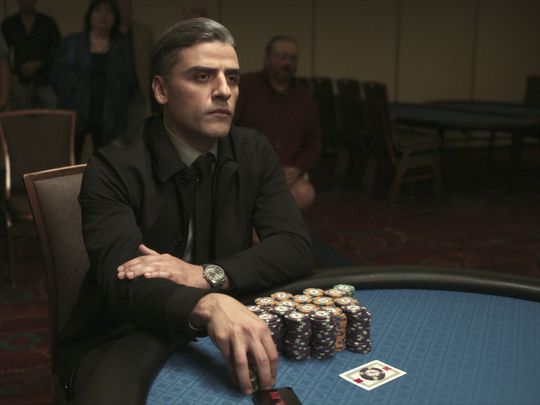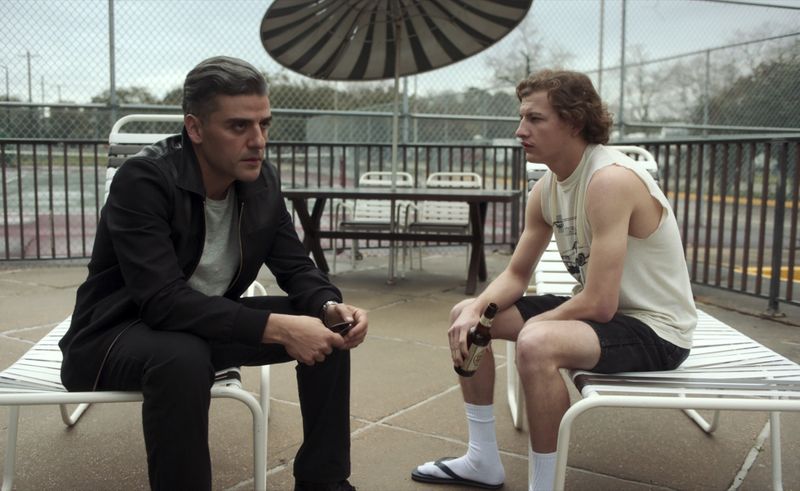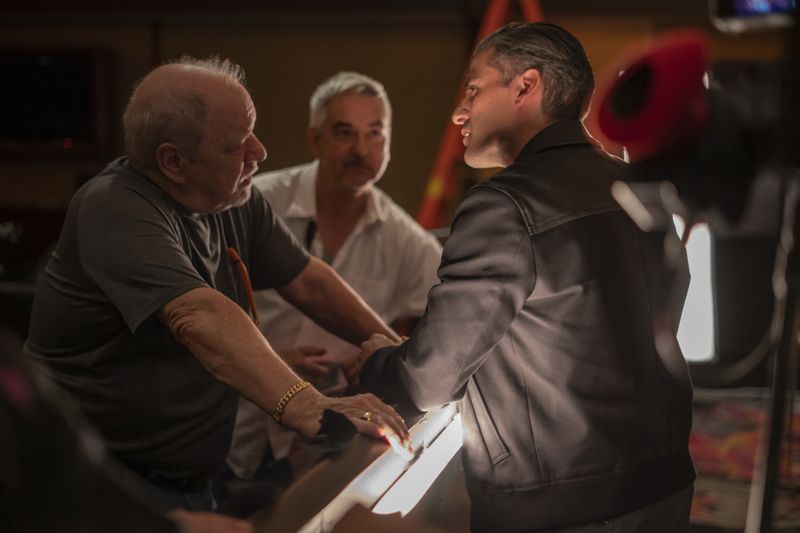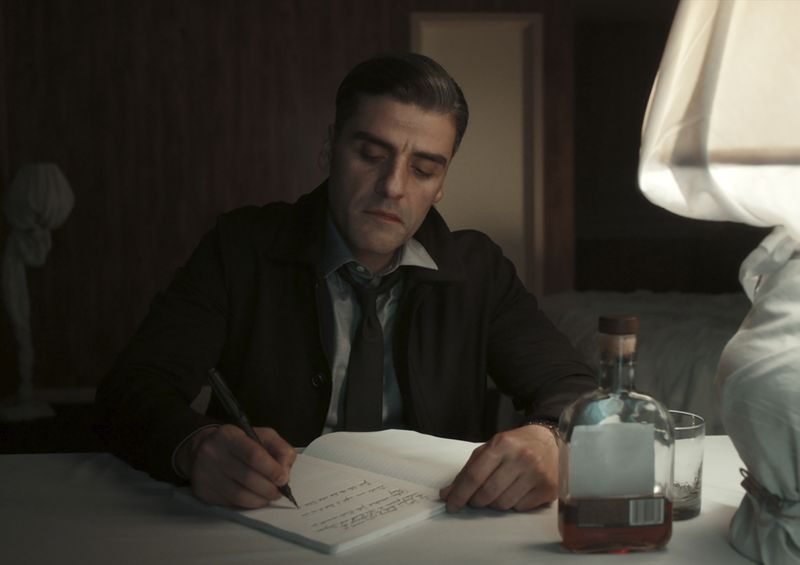
Paul Schrader has created one of the most compelling and enduring careers in Hollywood by continually returning to his cardinal character: “God’s lonely man,” traversing an alienated and sometimes hostile world in search of expiation for his own sins, and the redemption of the world’s.
Fans of ‘Taxi Driver’, which Schrader wrote, as well as any number of films he directed, including ‘American Gigolo’, ‘Light Sleeper’ and, most recently, ‘First Reformed’, will recognise the vibe. The lone gunslingers, assassins or itinerant loners of movies past become, in Schrader’s hands, a traumatised cabbie, prostitute, a drug dealer or a disillusioned pastor.

In ‘The Card Counter’, Oscar Isaac delivers a mesmerising portrayal of the latest iteration of Schrader’s favourite cinematic avatar: a professional poker player grappling with a harrowing and guilt-ridden past.
As the movie opens, Isaac’s character, William Tell, explains how he came to learn his trade: in military prison, where he’s been serving a sentence that only later comes fully into focus. After his release, he’s been travelling the gambling circuit in a hermetically sealed bubble of isolation and ascetic self-discipline: When he checks into a motel in whatever anonymous town he happens to fetch up in, he systematically removes every piece of art from the walls and wraps every piece of furniture in shroud-like white fabric. He craves solitude, routine and sensory underload.
As one of Schrader’s lonely men, Tell shares obvious DNA with ‘Taxi Driver’s’ Travis Bickle and Ethan Hawke’s tortured Rev. Toller in “First Reformed.” (Willem Dafoe, who has appeared in more than a dozen of Schrader’s variations on this theme, shows up in a crucial cameo role.) The degree to which viewers will find ‘The Card Counter’ a rewarding elaboration on an American auteur’s life’s work or a mere iteration of a played-out shtick will depend on how far they’re willing to let Schrader lead them on what threatens to be a desultory and occasionally perfunctory journey.

On his travels, Tell reunites with LaLinda (Tiffany Haddish), a charismatic manager who asks him to join her stable of reliable players. He demurs, but reconsiders after bumping into an angry young man named Cirk (pronounced “Kirk”), played with bruised intensity by Tye Sheridan. The three eventually form an unlikely team in ‘The Card Counter’, by way of scenes that feel schematic and strangely frictionless. The boredom isn’t helped by Tell’s periodic narrated tutorials on the finer points of poker, in which he tediously explains everything from percentages and probabilities to flops, rivers, buttons and blinds.
“The Card Counter” can be a dull movie to watch: It lacks the crisp visual clarity of “First Reformed,” perhaps because Schrader wanted to capture the featureless, permanent-twilight world that Tell inhabits (the movie was shot mostly in Biloxi, Miss.). Although all the main actors are outstanding, they never mesh into an entirely convincing whole. Haddish is particularly refreshing in moments of what seem to be unrehearsed humour and spontaneous energy, and viewers may find themselves grasping for more of those respites from ‘The Card Counter’s’ lugubrious tone of hard-boiled gloom.

Still, ‘The Card Counter’ manages to perform a sleight of hand worthy of Tell’s own talents: Isaac exudes a wary, controlled energy that exerts a sense of coiled stillness and quiet command, making it easy for viewers to go wherever he leads, even if it’s into an airless, stiflingly tedious card room of a banal exurban casino. Even if audiences find the final moments of ‘The Card Counter’ unpersuasive, the film’s meditation on larger ideas — having to do with culpability, redemption, accountability and the search for truth on a national scale — is eerily timely.
In some Hollywood circles, “You did it again” is a backhanded compliment. With ‘The Card Counter’, Schrader has reverted to form, but he’s remade it anew at the same time. He’s done it again, with crafty, haunting power.
Don’t miss it!
‘The Card Counter’ is now showing in UAE cinemas.









